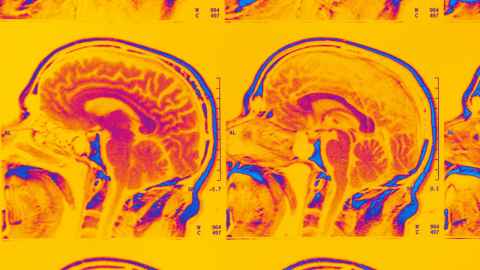Courts inconsistent on neurodiversity, researchers say
8 October 2025
The District Court is leading the way when it comes to supporting people with neurodiversity, but researchers say other courts need to catch up.

At every stage, from apprehension to arrest to sentencing, people with neurological challenges such as autism, fetal alcohol syndrome, ADHD or brain injuries are disadvantaged in court, say Professor Mark Henaghan (Auckland Law School) and researcher Jean Choi in the new book, International Perspectives of Neuroscience in the Youth Justice Courtroom.
Henaghan and Choi argue that the Youth Court and District Court are leading the way in developing neuro-disability jurisprudence, setting the standard for adoption throughout the criminal justice system in Aotearoa.
“The justice system is designed for those with strong verbal skills,” says Henaghan. “Many offenders, particularly those with neurodiversity, simply don’t have those skills, so their fundamental rights and access to justice are affected.”

The consequences of misunderstanding neurodiversity are serious. One example is the case of Teina Pora, who spent 21 years in prison for a crime he did not commit. The Privy Council later accepted evidence of his fetal alcohol spectrum. Henaghan and Choi say the case is a sad testament to the higher courts’ failure to understand the impact fetal alcohol spectrum disorder can have when a defendant is put under pressure to confess to a crime.
The presence of neuro-disability, intellectual disability, mental health conditions, underdeveloped brain development, and acquired brain injury in youths requires special consideration when it comes to court processes, says Henaghan.
“Often added to this is the use of alcohol and other drugs, which can exacerbate neuro-disabilities, as well as the delayed brain development of youth. All of this has a major effect on limiting the executive functioning of young people before the court, and it can impact outcomes.
“It’s crucially important that neurodiversity be identified early in young defendants so that the appropriate programmes can be put in place to ensure they don’t remain in a system which does not understand them and condemns them to a life of constant misunderstanding and the pain of coming in and out of the criminal justice system.”
Leading the shift towards better experiences for defendants with neurodiversity, is the District Court, which has been running a pilot called the Young Adult List. The pilot places 18 to 24-year-old defendants on a separate court list on Fridays. Its focus is on understanding the wide range of neurological challenges youth can face, and helping to figure out the appropriate support, treatment and level of accountability used in the court.
“The Young Adult List shows what’s possible, and why recognition of, and support for, people with neurodiversity is so important in New Zealand’s justice system.”
The Young Adult List has a multidisciplinary team to provide wraparound support for the young adult offenders who appear. Everyone’s alert to the special needs and characteristics of the defendants, and there’s a focus on the special features that could limit thinking, memory, and focus, says Henaghan.
"Plain and accessible language is used by court professionals in and outside the courtroom, and the judiciary allows defendants to build a connection with the judge. Courtroom seating arrangements are revised to enable each defendant to participate, and support is given to defendants throughout the court process."
In the second phase of the pilot, there are plans to introduce a screening tool for characteristics that may limit executive functioning among defendants. Even without the screening tool, Henaghan says the Young Adult List allows access to more extensive information, including reports from the Family and Youth Court.
He says the Young Adult List Court is also much more welcoming of families, which is particularly important for Māori and Pacific families. One concern, however, is that because the list is becoming very large, it could overload the court and increase waiting times.
“The Young Adult List shows what’s possible, and why recognition of, and support for, people with neurodiversity is so important in New Zealand’s justice system.”
Media contact:
Sophie Boladeras, media adviser
M: 022 4600 388
E: sophie.boladeras@auckland.ac.nz